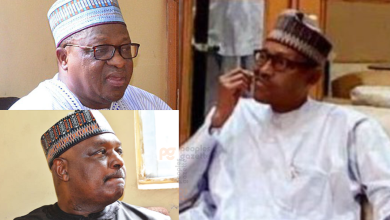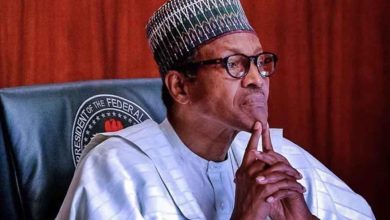Investing in youths for national development

Investing in youths for national development is very vital to national development. Recently, there was an interface between the Minister of Education, Alhaji Adamu Adamu, and the leadership of the National Association of Nigerian Students (NANS) on the ongoing strike by the Academic Staff Union of Universities (ASUU).
Youths are the main victims of the decay, instability and low quality education in Nigeria. They suffer most when our health facilities are poor, and are the frontline victims of unemployment, terrorism and a host of other
social vices. Yet, the youth form most of our population.
In 2016, the ‘World Population Prospect’ put the rapidly growing population of Nigeria at 185,989,640. Its breakdown shows that children under the age of 15 made up 44%, age 15 to 65 was 53.2% and those of 65 and above, 2.7%. This implies that youths constitute the chunk of the Nigerian citizenry, with a majority in our schools’ system from primary to tertiary levels.
Unfortunately, they are also largely unemployed, recruited by bandits and kidnappers. They are engaged as political thugs and economic ‘labourers.’ Nigerian youth figure in our socioeconomic space as cyber-criminals,
human ritual killers, armed robbers, prostitutes etc. Theirs seem to be a generation that is both wasted and condemned into a future of hopelessness. Consequently, most youths now seek any opportunity to flee the country. The #EndSARS protest shows how aggrieved the youths are.
Ideally, the youths ought not to be liability to the nation. If properly handled, they are an asset that could catapult Nigeria into an economically viable and strong state. For example, the National Youth Service Corps (NYSC) scheme, given its large number of well-trained youths, could easily solve the food problem of Nigeria if engaged for agricultural purposes nationwide. It is still a wonder that Nigeria is not doing well in all sports. Given the socioeconomically transforming power of sports, one would have expected the establishment of games academies across the country. This would result in inflow of foreign investments in Nigeria.
The neglect of public schools and institutions is a ticking time-bomb. It amounts to neglecting and impoverishing the children of the downtrodden who constitute a majority of our youths. The fact that the children of the wealthy are abroad gaining what ought to be available for all Nigerians is another way of entrenching conflict between the social classes.
Longevity is partially a function of good health infrastructure and facilities. So, given the poor state of our hospitals and the general health sector, it is obvious that the life span of our youth is shortened by our collective failure.
There can be no better way to positively engage the Nigerian youth than extricating them from unemployment into productivity. The failure to address the productive sector of the Nigerian economy is dangerous. Firms are
folding up and relocating to other countries due to unfavourable socio-economic conditions such as lack of energy and power supply, insecurity, and corruption.
Read Also: Where are Nigerian female rappers?
The rate at which universities are being established by government is not salutary unless it is complemented by growing industries to employ the graduates of these new institutions. We need more industries, good and stable power and energy supplies, qualitative municipal infrastructure as well as well-trained middle cadre technically skilled people.
Nigerian youths are not national liabilities. They are our assets and future. Appointing them as “Special Advisers or Assistants” as is common in most states is a short-term measure. Their engagement as political thugs is inimical to our national development. The time has come for government to hold a “National Youth Conference”
where they would air their voices.
The First National Implementation Plan for 2020 espoused what would have passed for a welcome youth policy. It was stated that ‘the proposed investment for the [youth] sector for the Plan period is N42,593 billion. … Youth
Development is a core element in the development agenda of the country in view of its enormous potential to propel the growth and development of other sectors of the economy.’ It further stated that ‘some of the projects and programmes that have impact on youth’s development include ‘Youth Empowerment Scheme (YES); Mandatory Attachment Programme (MAP); National Youth Service Corps (NYSC) scheme; and Citizenship and Leadership Training Programmes.’
The Trumpet identifies with the 2020 National Plan. We must ‘empower Nigerian youths to become self-reliant and socially responsible’ as a fulcrum of National Development.




